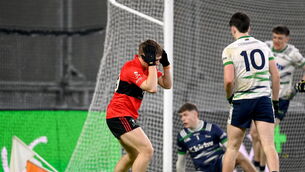New structure not ‘final answer’ to hurling problems
However, they abandoned such a strategy in favour of a three-tier All-Ireland championship which received the overwhelming support of delegates.
Ger Loughnane, one of the high-profile former managers on the committee, insisted later that there had been no "hidden agenda" to get rid of the provincial competitions at the end of the two-year experimental period.













